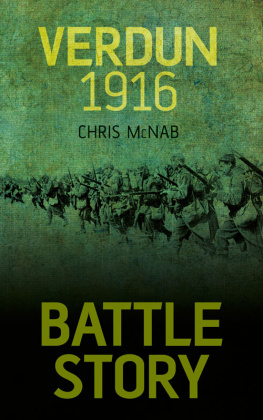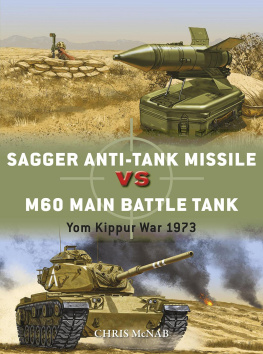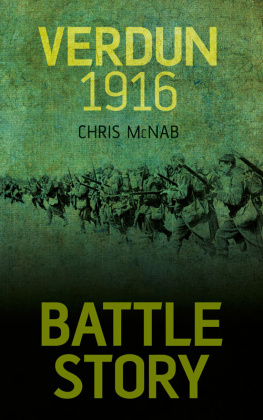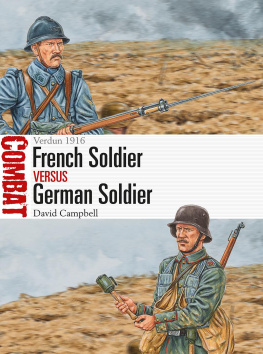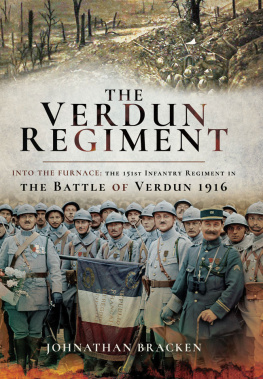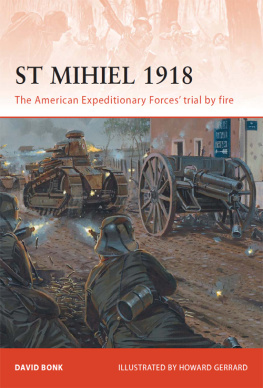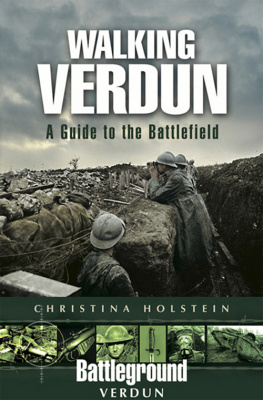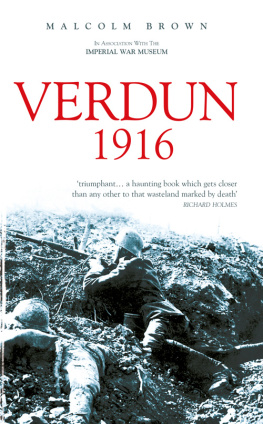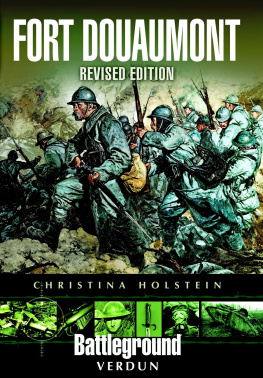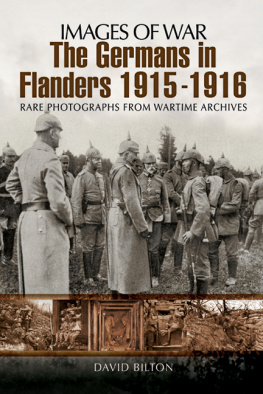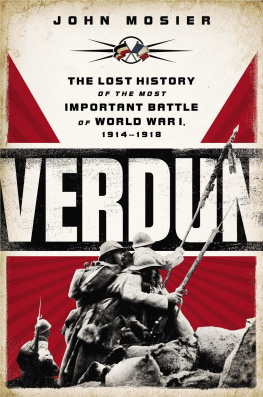At the approach of Christmas 1916, it was time for all sides to take stock of what had occurred at Verdun. For the Germans, the lessons were naturally negative. The battle had indeed become an exercise in attrition, but in the final accounting the balance was scarcely in the Germans favour. Total German casualties sustained at Verdun in 1916 were 329,000 men, of which 142,000 were fatalities or missing. French casualties amounted to 156,000 dead or missing and 195,000 wounded, a total of 351,000 casualties. At this scale, the fact that the Germans had lost some 20,000 fewer men mattered little Falkenhayn had bled his own army as much as the enemys forces.
The German post-mortem on what went wrong at Verdun began well before the French offensive of October 1916, or the final victories of December. A later account of the battle written by Ludendorff, even taking into account his natural antipathy towards Falkenhayn, nevertheless makes some sound judgements:
The position of our attacking troops grew more and more unfavourable. The more ground they gained, the deeper they plunged into the wilderness of shell-holes, and apart from actual losses in action, they suffered heavy wastage merely through having to stay in such a spot, not to mention the difficulty of getting up supplies over a wide, desolate area. The French enjoyed a great advantage here, as the proximity of the fortress [Verdun] gave them a certain amount of support. Our attacks dragged on, sapping our strength. The very men who had first fought so heroically at Verdun were now terrified of this shell-ravaged region. The command had not their hearts in their work. The Crown Prince had very early declared himself in favour of breaking off the attack. That offensive should have been broken off immediately it assumed the character of a battle of attrition. The gain no longer justified the losses.
Quoted in Horne, Source Records , 1923
Ludendorff identifies some factors about the Battle of Verdun that were shared by many sectors of the Western Front. One of the most important was the issue of supply and movement in a landscape utterly wrecked by incessant shellfire. Frontline troops not only became starved of supplies in many positions (during the October offensive, some German prisoners claimed that they had not received food for six days), but they also became weakened in health and morale by the dreadful living conditions. Whereas French troops were generally rotated out of the line every two weeks, the Germans would remain in position for months, the daily experience chipping away at their ability to resist. Furthermore, once the offensive movement drained out of Operation Gericht, the French artillery could deliver a constant rain of death on German heads.
Ludendorff might also have mentioned broader German tactical mistakes during the offensive phase. Reserves were kept back when committing them might have turned the course of a battle, and the offensive was often launched over too narrow a front, preventing a general collapse of the French lines. Ludendorff also points out the obvious problem that the German commanders at Verdun had not their hearts in the work, identifying the Crown Prince in particular. It was certainly the case that enthusiasm for the Verdun offensive had waned amongst many in the high command by July 1916. Looking at the offensive in its broadest strokes, the objectives for the operation appear to be drawn very loosely, with uncertain objectives. Questions still remain over what Gericht was actually for the capture of Verdun (territorial objective) or to inflict attrition (human objective). It is likely to have been somewhere between the two, but historically a lack of clear mission objective has been the downfall of many an army. Little wonder, therefore, that commanders such as the Crown Prince quickly lost heart in the campaign once the attrition on the German side began to mount.
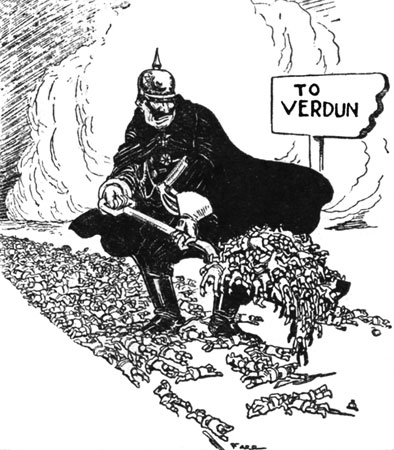
45. The Road-bed cartoon depicting the slaughter at Verdun. ( The War Budget , 30 March 1916. New York Evening Telegram )
The post-war period offered the opportunity for many commanders to write history in their favour. Exculpatory purposes mean that we have to take many of the documents with a pinch of salt, but another useful account is that written by Hindenburg in 1920, in his book Out of my Life . In this work, he outlines the reasons for which he called off the Verdun offensive:
Very soon after I took over my new post I found myself compelled by the general situation to ask His Majesty the Emperor to order the offensive at Verdun to be broken off. The battles there exhausted our forces like an open wound. Moreover, it was obvious that in any case the enterprise had become hopeless, and that for us to persevere with it would cost us greater losses than those we were able to inflict on the enemy.
Our forward zone was at all points exposed to the flanking fire of superior hostile artillery. Our communications with the battle-line were extremely difficult. The battlefield was a regular hell and regarded as such by the troops.
When I look back now, I do not hesitate to say that on purely military grounds it would have been far better for us to have improved our situation at Verdun by the voluntary evacuation of the ground we had captured.
In August, 1916, however, I considered I could not adopt that course. To a large extent the flower of our best fighting troops had been sacrificed in the enterprise. The public at home still anticipated a glorious issue to the offensive.
It would be only too easy to produce the impression that all these sacrifices had been incurred in vain. Such an impression I was anxious to avoid in the existing state of public opinion, nervous enough as it already was.
Quoted in Horne, Source Records , 1923
Here Hindenburg acknowledges the weariness of the German troops, plus the detrimental effects of the increasingly confident French artillery. The uneven nature of the advance also meant the German troops in the DouaumontFleuryDamloup triangle were faced with French artillery on all sides, meaning that any resumption of the attack would face enfilading fire from their western flank. What is most striking about the passage above, at least to modern eyes, is that Hindenburg rejects a straightforward retreat for reasons of morale the sacrifices of the men had to be shown to count for something, even if the continued prosecution of the battle would cost thousands more lives. Hindenburg goes on to admit that, eventually, the German resolve was broken by an increasingly competent French handling of offensive tactics:
We were disappointed in our hopes that with the breaking-off of our offensive at Verdun the enemy would more or less confine himself to purely trench warfare there. At the end of October the French opened a largely-conceived and boldly-executed counter-attack on the eastern bank of the Meuse, and overran our lines. We lost Douaumont, and had no longer the strength to recover that field of honour of German heroism.
For this attack the French commander had abandoned the former practice of an artillery preparation extending over days or even weeks. By increasing the rate of fire of the artillery and trench-mortars to the extreme limit of capacity of material and men, only a short period of preparation had preceded the attack, which had then been launched immediately against the physically exhausted and morally shaken defenders.
We had already had experience of this enemy method of preparation for the attack in the course of the long attrition battles, but as the herald to a great infantry attack it was a novelty to us, and it was perhaps just this feature which doubtless produced so important a success.

